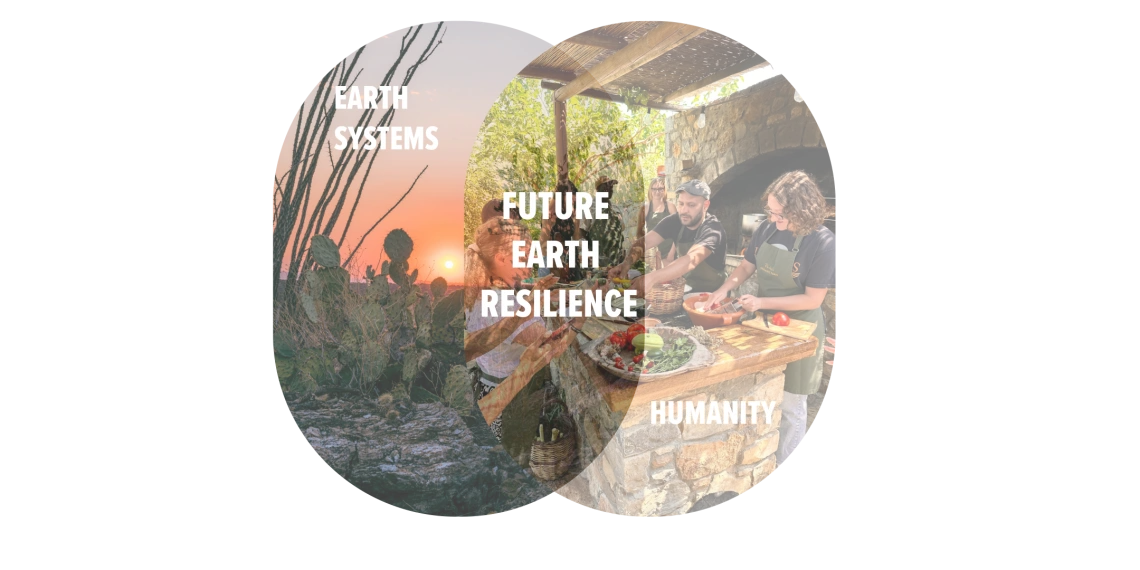
THE FUTURE IS
WHAT WE MAKE IT
The Future Earth Resilience Minor (FER) engages with the dynamic convergence of Earth systems, humanity, evolving ecosystems, and technology, and challenges you to imagine and shape resilient futures. From artificial intelligence to climate change, economic systems to artistic expressions, FER students transcend disciplinary boundaries to develop a deeper and more nuanced understanding of our complex current moment through a diverse range of courses and experiences beyond the classroom.
REQUIRED UNITS 18 (6 UNITS OF REQUIRED COURSES, 12 UNITS OF ELECTIVE)
Questions Explored
In the intro course, you'll develop a foundational understanding of Earth processes, resilience, and the interaction between humanity and the planet. The diversity of the electives available in the minor intends to challenge conventional notions of resilience, encouraging interdisciplinary thinking and considering concepts like "future" and "resilience" from diverse human, ecological, and technological perspectives.
FER minor courses invite students to reflect on and investigate our current environmental moment—its urgencies, inequities, and possibilities—while engaging imaginative ways of rethinking resilience. We study how experts across disciplines work toward sustainable practices and resilient Earth communities, not only by developing and implementing solutions but also by questioning assumptions, envisioning alternatives, and proposing transformative responses. Traditionally, scientists and engineers are seen as the innovators, but here we expand that vision to include a wider constellation of thinkers, makers, and communities shaping resilience in practice.
Innovative scientific, engineering, economic, cultural, and sociopolitical solutions, and the resources to support them, are often not allocated equitably to groups facing threats to resilience. The courses in the FER minor expand our capacity to think critically and across disciplines: to ask why these challenges arise, to grapple with questions of inequity (‘Who is benefiting? Who is harmed?’), to recognize the roles of history, ethics, and culture, and to imagine alternative futures. In doing so, students gain not only sharper analytical tools but also greater capacity for empathy and action.
Have questions about the FER Minor? Reach out
to us!

Claire McLane, Co-Director


